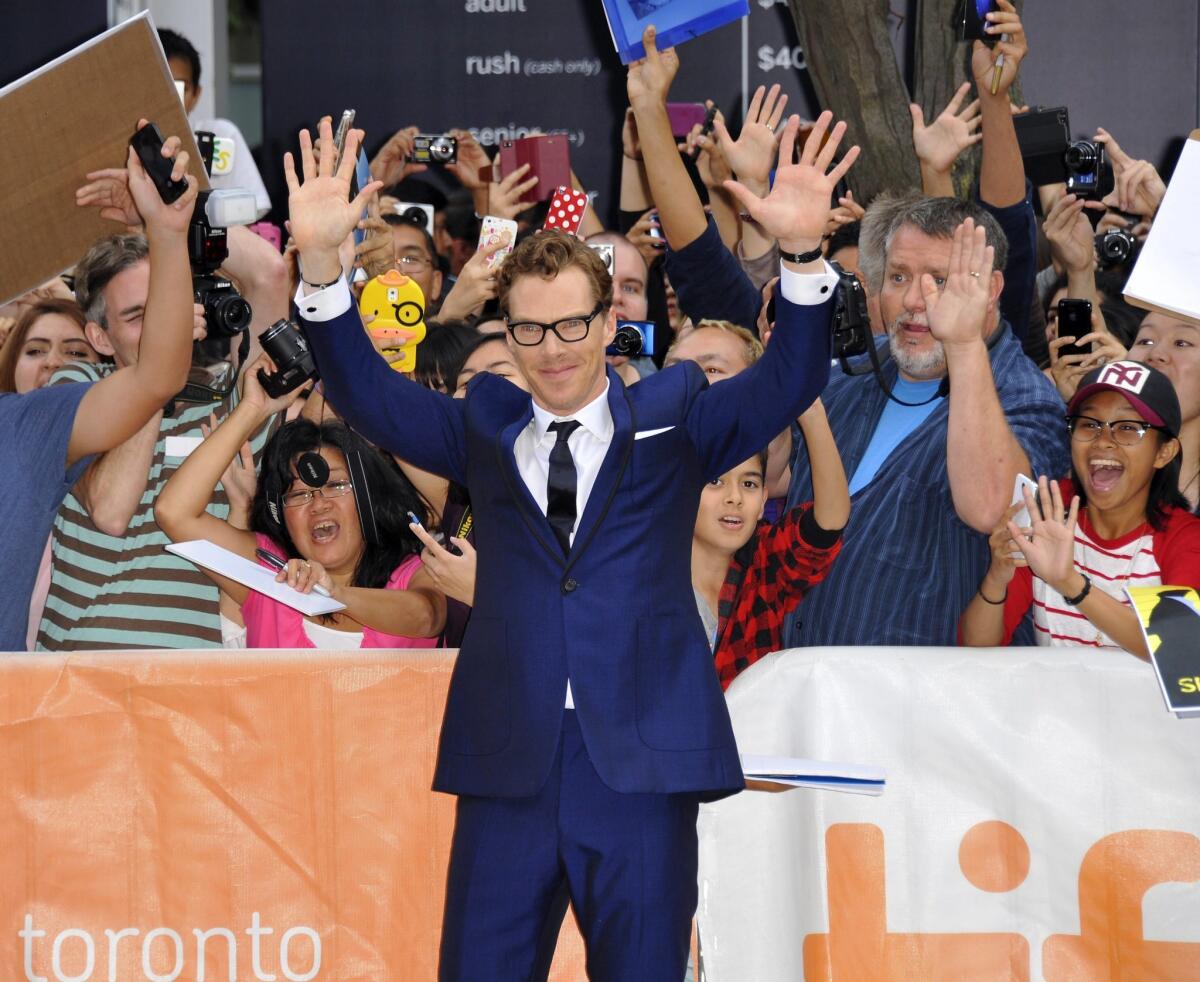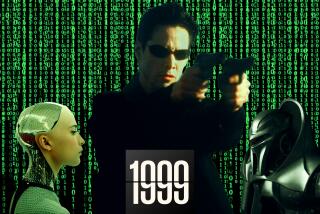TIFF 2014: For Benedict Cumberbatch, a new kind of puzzle-solving

- Share via
Reporting from Toronto — Benedict Cumberbatch has been racking up acclaim of late for solving mysteries as Sherlock Holmes on the BBC, which would seem a natural complement to his latest adventure. In the new film “The Imitation Game,” Cumberbatch plays a trailblazing technologist who, among other things, cracked the Nazis’ Enigma Code and helped hasten the end of World War II.
Cumberbatch, however, cautions against easy comparisons between the two characters. “They’re both bright and solve things,” he said. “But Sherlock is sociopathic and slightly psychotic and is a showman with his knowledge. And Alan isn’t really all about the limelight. It’s all about the problem.”
Audiences will get to see Cumberbatch solve plenty of challenges in Morten Tyldum’s film, which debuts Tuesday night at the Toronto International Film Festival and in theaters Nov. 21. Initially recruited by the British military as part of a group of university-based code-breakers in a last-resort bid to crack Enigma, Alan Turing soon became a leader of the group and developed a machine that pulled off the improbable feat.
As incarnated by Cumberbatch, he’s witheringly confident, fiercely intelligent, brutally frank and at times borderline autistic; you wouldn’t be wrong thinking of him as a kind of upscale version of TV’s Sheldon Cooper.
Turing’s achievements match his boasts. He comes up with a solution that’s believed to have brought the war to an end a full two years earlier. Turing, who was gay in an environment hardly hospitable to it (a plot element in the film), also made other significant contributions to science, including of course his namesake test about artificial intelligence.
Yet despite all that, Cumberbatch has found the character less than a household name, “I think it’s just astonishing considering his level of achievements and what he stands for that he is relatively obscure,” said Cumberbatch, who with this role throws his hat into a crowded best-actor ring that includes Eddie Redmayne, also playing a game-changing British scientist.
Cumberbatch seems to bristle at the idea that he’s developing a brand playing brilliant problem-solvers. (“It’s like saying Michael Fassbender is only good at playing sexual deviants,” he said, referring to his “12 Years a Slave” costar’s turn in “Shame.” “He is, but he’s good at everything else too.”) Still, Cumberbatch does seem to have a knack for smart iconoclasts — sometimes those too smart for their own good, including Julian Assange in last year’s “The Fifth Estate.”
Playing Turing, who was persecuted by various enemies and imprisoned and even tortured and researched-upon, gave Cumberbatch a chance to bring the scientific and the personal together. “Everything he researched and wrote about he experienced,” Cumberbatch said. “Even in his last days when his body was being torn apart by estrogen he was writing about the mutation of cells due to his environment. Everything stimulated his work.”
More to Read
Sign up for The Envelope
Get exclusive awards season news, in-depth interviews and columnist Glenn Whipp’s must-read analysis straight to your inbox.
You may occasionally receive promotional content from the Los Angeles Times.







